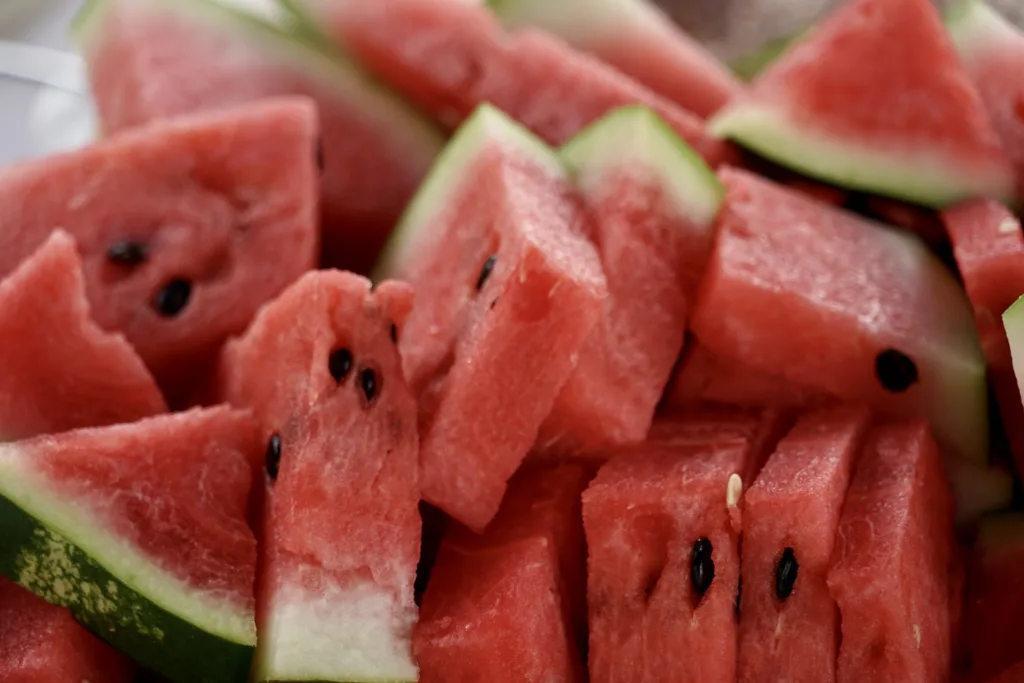Oklahoma is a state that takes pride in its agricultural heritage. With a rich history of farming and production of varous crops, it is no wonder that the state has an official state vegetable – the watermelon.
While some may argue that watermelon is a fruit, the state of Oklahoma officially recognizes it as a vegetable. Watermelon is a popular crop in the state, with many farmers dedicating a significant portion of their land to its cultivation.
Watermelon is not only a delicious and refreshing fruit, but it is also packed with nutrients. It is a great source of vitamin C, which helps boost the immune system, and it also contains lycopene, a powerful antioxidant that has been linked to a reduced risk of certain types of cancer.
In addition to its nutritional value, watermelon is also a versatile crop. It can be consumed fresh or used in a variety of recipes, from salads and salsas to smoothies and desserts.
The designation of watermelon as the official state vegetable of Oklahoma is a testament to the importance of agriculture in the state. It also serves as a reminder of the hard work and dedication of farmers who work tirelessly to bring fresh, healthy produce to our tables.
So the next time you enjoy a juicy slice of watermelon, remember that it is not just a fruit – it is also the official state vegetable of Oklahoma.
Why Is Watermelon A Vegetable?
Watermelon is considered a vegetable due to the fact that it is grown as a vegetable crop using vegetable production systems. Webster’s dictionary defines a vegetable as anything made or obtained from plants, and watermelon is indeed obtained from a plant. Furthermore, watermelon is commonly used in savory dishes, such as salads and salsas, which are typical of vegetable-based meals. Although some people may consider watermelon a fruit due to its sweet taste and juicy texture, in a culinary and agricultural context, it is classified as a vegetable. Therefore, based on its cultivation, culinary use, and definition, watermelon can be considered a vegetable.

What Is Oklahoma State Fruit?
Oklahoma’s official state fruit is the strawberry. This designation was made official through the passage of a bill, which is now recorded as 25 OS § 98.10. The bill passed and established the strawberry as the official state fruit of Oklahoma.
Do States Have A State Vegetable?
Many states in the United States have designated a state vegetable as a way to celebrate and promote their local agriculture. For example, California has artichokes as its state vegetable, Georgia has sweet onions, Idaho has potatoes, and New Jersey has tomatoes. Some states also have multiple state vegetables, such as Oklahoma, which recognizes watermelon and squash. It’s worth noting that the designation of state vegetables is largely symbolic and doesn’t typically have a significant impact on agricultural practices or production.
What Is The State Vegetable Of Alabama?
The state vegetable of Alabama is the sweet potato. The sweet potato is a root vegetable that is rich in vitamins and minerals, particularly vitamin A, potassium, and fiber. It is a staple food in many parts of the world, and has been cultivated for thousands of years. The sweet potato is often used in Southern cuisine, and is a popular ingredient in dishes such as sweet potato pie, sweet potato casserole, and sweet potato fries. As the state vegetable of Alabama, the sweet potato is recognized as an important part of the state’s culinary heritage and agricultural industry.
Conclusion
The state vegetable of Oklahoma is the watermelon. Despite some debate over whther or not watermelon is a fruit or a vegetable, it is officially recognized as a vegetable in Oklahoma due to its classification as a plant-based crop. Similar to other states, Oklahoma takes pride in its locally grown produce and the designation of the watermelon as the state vegetable is a testament to the important role agriculture plays in the state’s economy. the state vegetable of Oklahoma serves as a symbol of the state’s commitment to promoting and supporting the growth of fresh, nutritious produce for its residents and beyond.
